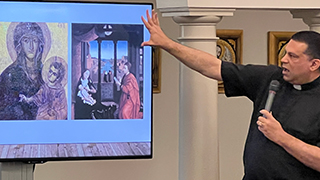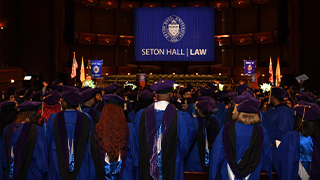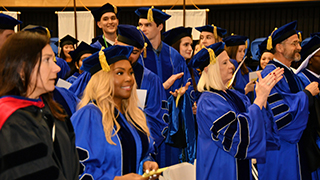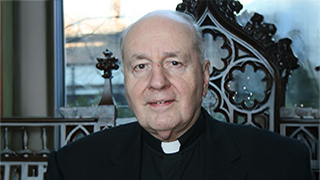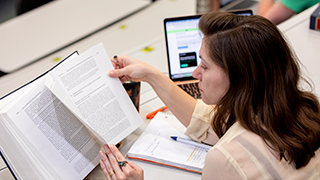History Department Symposium on Propaganda - Seton Hall University
Thursday, January 14, 2016
The Department of History is hosting the annual symposium at Seton Hall University on Friday, January 22, 9 a.m. to 5:30 p.m., in the Faculty Lounge of the University Center. This event is open to the public.
The rise of industrialized mass-societies predicated on notions of popular sovereignty transformed relationships between state power, ideology and the population. Modern propaganda is a product of this transformation.
Under the old regime, the population was expected to acquiesce, obey, and fulfill its obligations. Belief was an attribute of the spiritual realm, embodied in religious institutions, whose representatives policed the boundaries of acceptable thought. The doctrine of popular sovereignty undermined this division of labor and engendered a new set of imperatives. Rather than merely suppressing harmful ideas, it became necessary to propagate a positive set of beliefs, images and emotions which would resonate with the interests of power and ensure passive compliance, and active support. New modes of communication, such as newspapers, public events, graphic arts, radio, film and eventually television, played a central role as tools in the shaping of mass consciousness.
In times of peace, varying interests competed to deploy these tools for the advancement of programs ranging from the promotion of commercial products to campaigns for public health, moral reform, and political dominance. At moments of war and crisis, the state monopolized the tools of persuasive communication to inculcate a uniform worldview. Totalitarian parties and regimes, arising in the 1920s and 30s, extended this mobilization into ordinary life, exposing populations to a continual torrent of information designed to inculcate a cohesive regime of truth.
This symposium will explore the processes and technologies underlying the phenomenon
of modern propaganda in all its manifestations, and provide a comparative view of
the myriad of ways in which both state and non-state actors have strived to shape
the popular mindset through the manipulation of ideas, images and emotions.
Presentations by
- Allan Winkler (Miami University)
- Stephen Norris (Miami University)
- Thomas Doherty (Brandeis University)
- James J. Kimble (Seton Hall University)
- Elizabeth Bishop (Texas State University)
- Meredith Roman (SUNY at Brockport)
- Maria Snegovaya (Columbia University)
- James P. Woodard (Montclair State University)
Seton Hall University, Department of History, CENEX Organizing Committee:
- Larry A. Greene
- Nathaniel Knight
- Maxim Matusevich
- Murat Cem Mengüç
- Mark Molesky

